Coffee and açaí are two great national gastronomic traditions and important agricultural products in the Amazon. Apparently, these products largely consumed in the country, respectively, Coffea arabica and Euterpe oleracea, might seem unrelated. However, both can produce hot, tasty beverages, produced from their roasting and grinding: coffee, from the beans; açaí, from the pits, a byproduct of the fruit pulp production chain. The comparison between the two comes from this method of preparation and consumption: the products, after being roasted and ground, are heated and strained to create the drink.
Therefore, the preparation made from the seeds of Euterpe oleracea was named "açaí coffee." However, the Brazilian legislation stipulates that only the product derived from the fruit of the coffee tree can be called coffee. For this reason, the most appropriate name for "açaí coffee" would be "roasted and ground açaí beans."But producers have found alternatives, such as "açaí chafé," a combination of the words tea [chá] and coffee, or "açaí seed-based infusion."
The beverage, however, has already become popular under its given name, and its market is expanding. According to Orlando Nascimento, president of the Association of Açaí Coffee Producing Industries (Abica), there are more than 50 producers in Pará alone. Other Amazonian states, such as Amapá, Amazonas, and Maranhão, have also entered this market.
PROPERTIES
Orlando Nascimento, producer of Chafé de Açaí Amazônia, in the municipality of Pacajá, Pará, says he became interested in producing "açaí coffee" after learning about the beverage's beneficial properties, according to a friend. "He told me that by consuming the powder made from the açaí seed, manipulated in the same way as coffee, his blood sugar levels dropped from 415mg/dL to 116mg/dL in just one week," he recalls. "It's a caffeine-free beverage, considered a source of fiber, minerals, and antioxidants, offering nutritional benefits with low calories," he assures.
The therapeutic properties of açaí seed extract have been studied for some time by Brazilian researchers. Research shows this extract contributes to tackle obesity, diabetes, and fatty liver, as well as to reduce blood pressure, protect the kidneys, and balance intestinal flora.
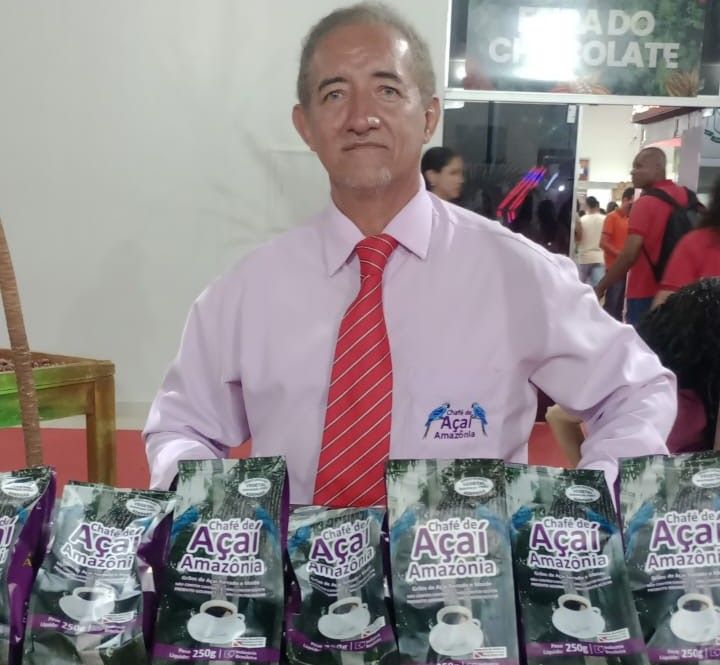
Professor Johnatt Oliveira, from the Department of Nutrition at the Federal University of Pará (UFPA), is researching with the product in the institution's Food Hygiene and Bioprocesses Laboratory. According to the studies, açaí seed powder has beneficial health effects. "We have identified phenolic compounds in this beverage, meaning it has antioxidant potential, which has both anti-aging and protective functions for organs and the human body against diseases. The main compound identified is procyanidin, which has beneficial effects for people with diabetes," he explains.
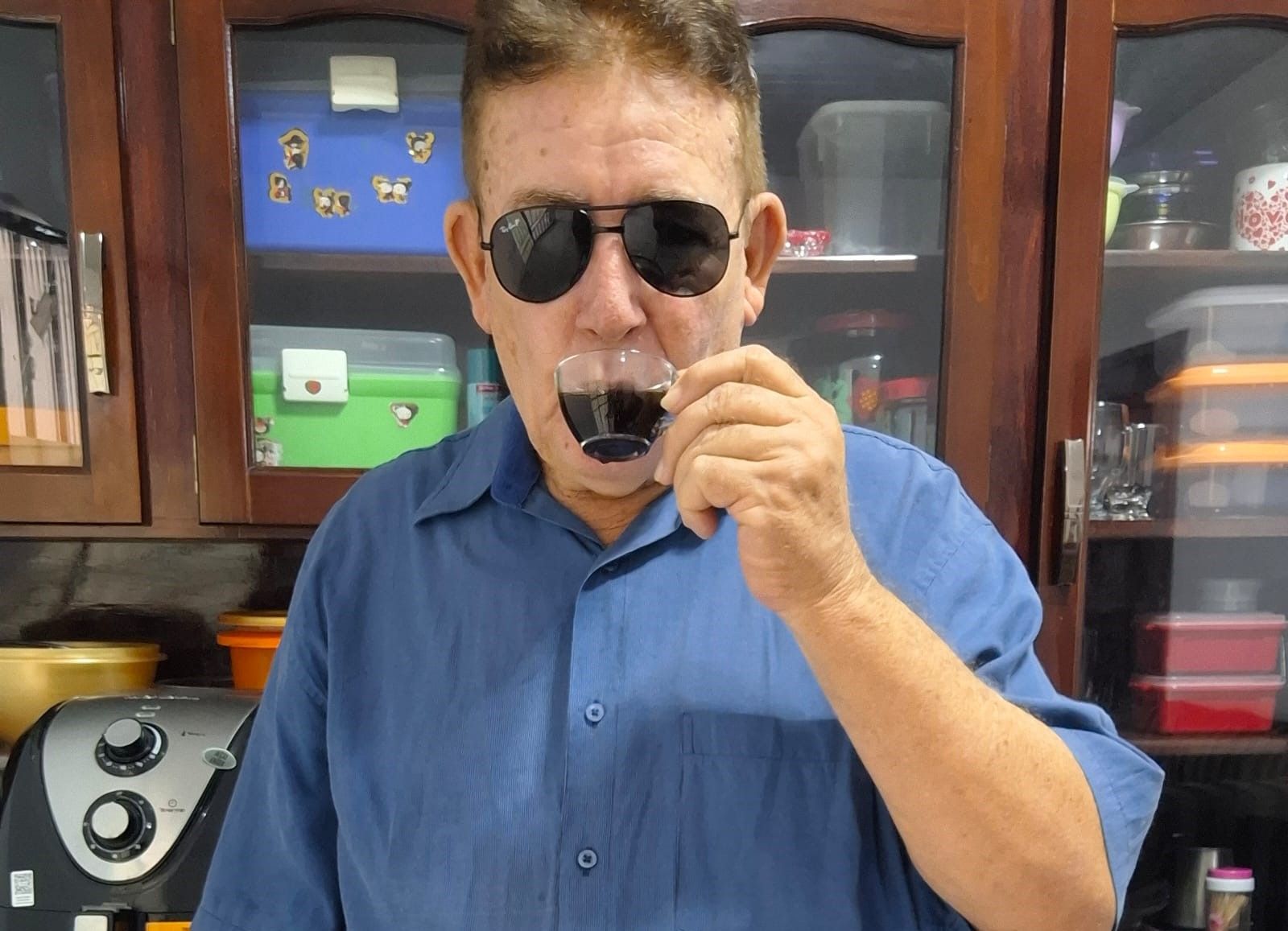
Franco Maya, from Altamira, Pará, regularly consumes the beverage for therapeutic purposes. Although he's not diabetic, he says he always monitors his blood sugar levels because of his age, 65. "A friend of mine recommended it to me to control my blood sugar and fat. At first, I didn't believe it, but I took it anyway, did the tests, and really noticed that my blood sugar dropped. So I take it for my health, for this reduction, and also because I feel more energetic. Nowadays, I can't live without it: it works very well for me," he assures.
Cecília Oliveira, 69, also from Altamira, has several health conditions, which she says she has been able to stabilize with the product. "I'm diabetic, hypertensive, and have vascular and heart problems. I've been drinking açaí coffee every day for two years and have had very good results in my blood tests. Besides being delicious, it's nutritious and medicinal. If people knew how important açaí coffee is for our health, our lives, our brains, and everything in our bodies, they would drink it," she recommends.
PRODUCTION
According to Orlando Nascimento, the state of Pará once produced 50 tons of "açaí coffee" per month, creating around 4,000 jobs. Nascimento's current production is around four to five tons per month, but it started out small. "I started with simple methods, roasting seeds in a pressure cooker and blending them in a blender, producing three kilos per week. As demand increased, I gradually acquired new equipment and produced more. I bought a gas roaster with the capacity of fifteen kilos per day and an electric grinder that allows for a production of 40 kilos per week. With more professional infrastructure, I expanded operations and began selling the beverage to other states," he explains.
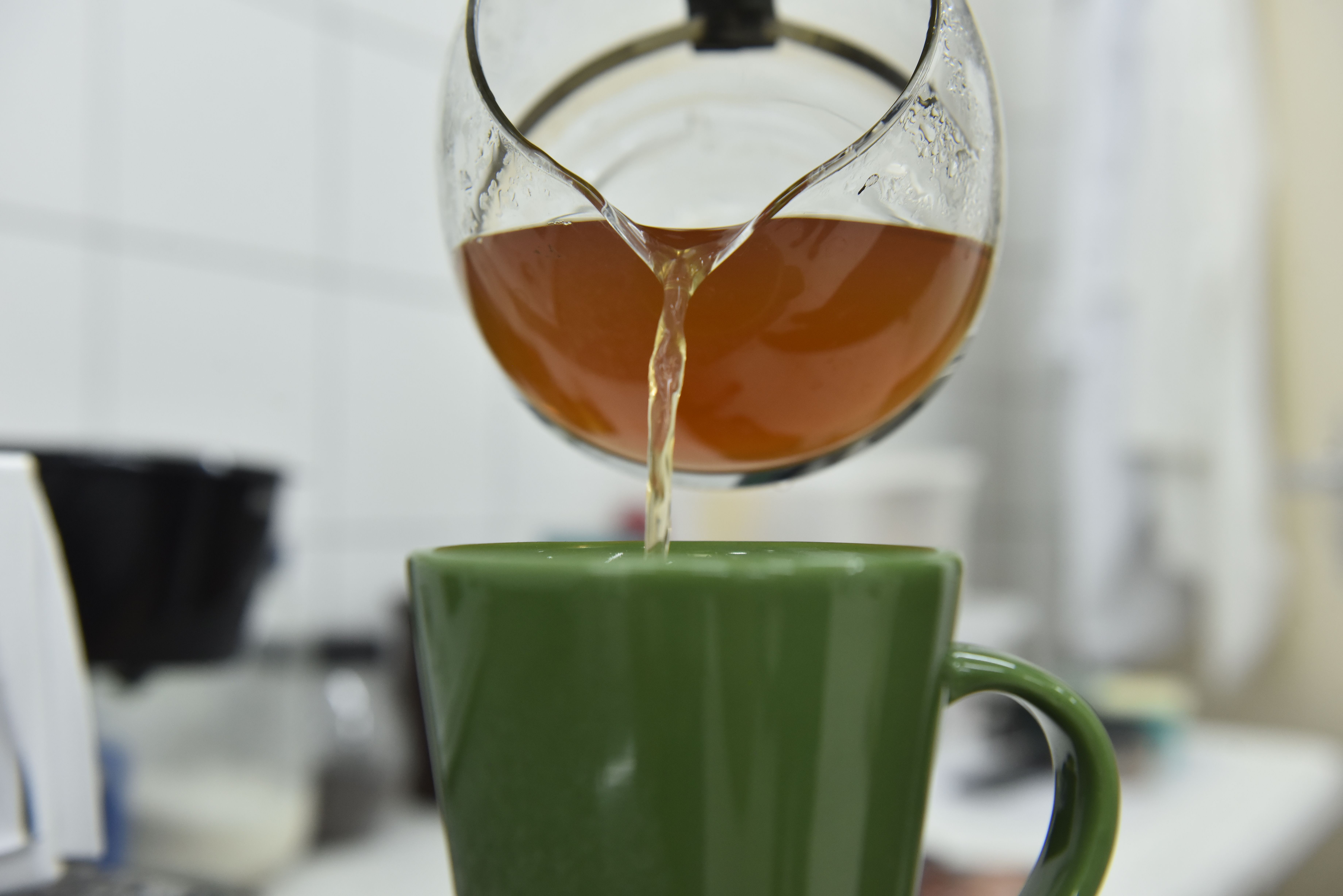
Company relies on research
Another company producing "coffee" is Raízes do Açaí, owned by partners Gabriela Alarcón and Rosilan Farias. Production began in 2021, when Rosilan was selling the beverage in Afuá, motivated by the discarded açaí seeds. She began buying the seeds from local riverside communities and, as she recognized the product's potential, sought research support to improve her business. That was when she met Gabriela, a food engineer who was researching the potential of using açaí seeds and the beneficial properties of the beverage.
"We joined forces to develop the beverage in a more technical, sustainable, and innovative way, drawing on Amazonian biodiversity. The artisanal production was very well received locally, both for its flavor and the interest in its sustainable approach. Now, we are in the process of regularization and preparation for a new international demand that has emerged," she states.
The company's product was named "functional infusion based on açaí seeds." "Although the roasting and grinding processes are similar to that of coffee, we understand that this name causes confusion and doesn't fully convey the product's true purpose. Infusion more clearly conveys its identity and benefits," explains Gabriela.
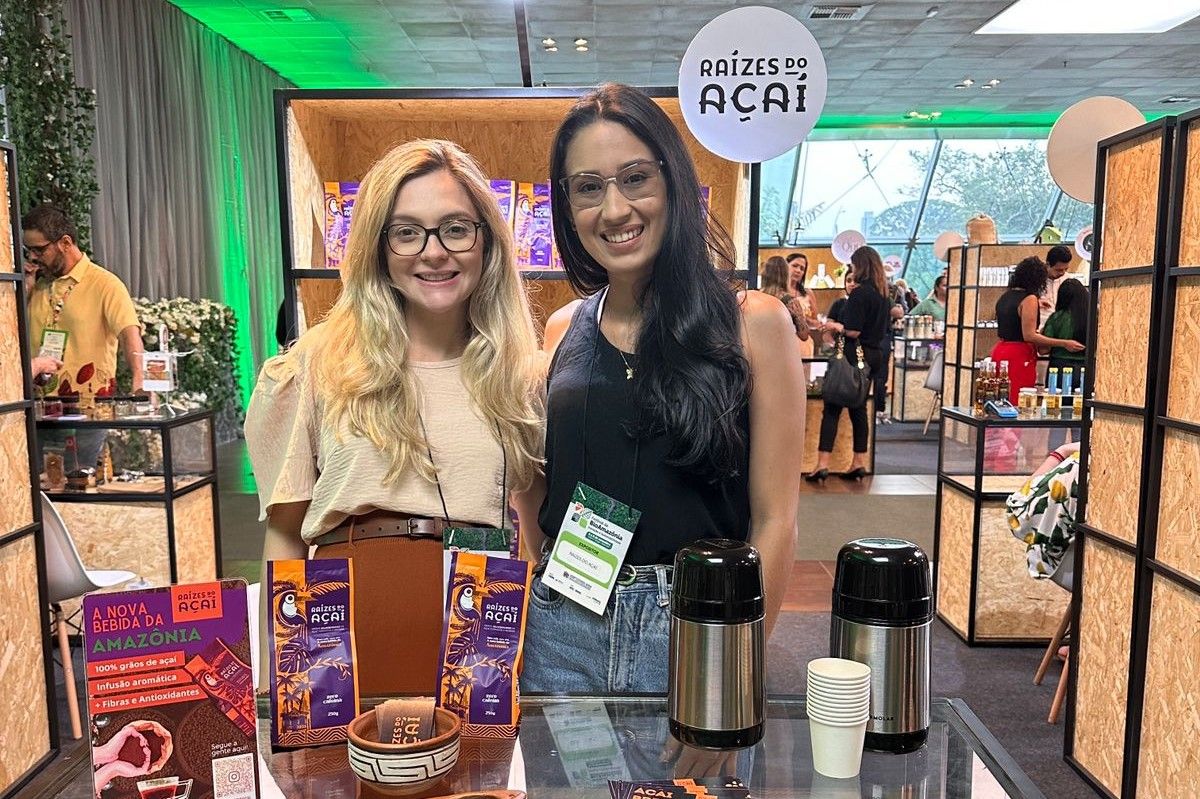
SUSTAINABILITY
Besides producing a delicious beverage with significant health benefits, the production of "açaí coffee" also offers environmental benefits. "This process offers an alternative to the pollution caused by the disposal of the pit, which can account for up to 80% of the fruit's volume," Nascimento notes.
After the açaí pulp production process, the pits are often discarded improperly or along with regular trash and can become a health problem, especially when açaí is consumed more frequently by the population, as is the case in Pará, the largest producer of the fruit in Brazil.
"It's a material generated in large volumes that becomes an environmental problem, mixing with regular waste and hindering recycling or clogging sewers, for example. So, we can repurpose this waste, causing it to stop being a material with no economic value and becoming a byproduct. Value is added to this waste for various purposes, not just for beverage production," emphasizes Professor Johnatt Oliveira of UFPA.
For Gabriela, the product represents a great opportunity for the Amazonian bioeconomy. "Transforming açaí seeds, often improperly discarded, into a functional beverage adds value to an abundant waste product and, concurrently, promotes a more sustainable and fair production chain. Furthermore, it creates new sources of income for local communities and strengthens the intelligent use of forest resources, aligned with the principles of the circular economy and the valorization of socio-biodiversity," she emphasizes.
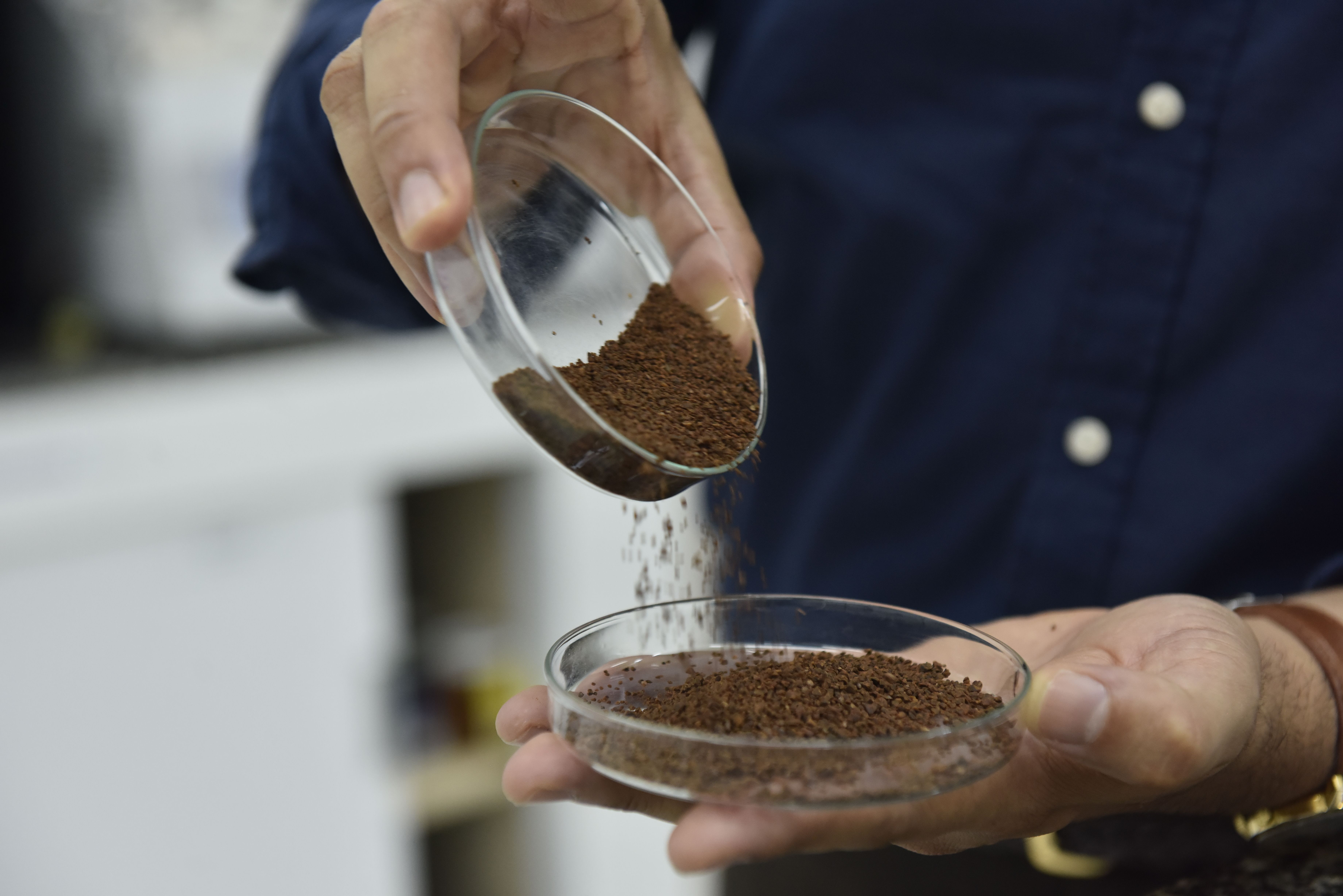
Product already comes in roasted, ground, and flavored versions
In addition to conducting research to ensure the non-toxicity of "açaí coffee" and its beneficial health properties, Professor Johnatt Oliveira and his team are also exploring product innovations. "Here in the lab, we seek to improve the flavor and acceptability of the product. So, we test different particle sizes and flavorings. Just as there are fruity or citrus coffees, here we develop roasted and ground açaí seeds flavored with regional fruits, such as cupuaçu, bacuri, and taperebá," explains the professor. "We also perform treatments to remove the astringency of the beverage," he adds.
The lab's most significant innovation is now producing the beverage in soluble form. "Just like instant coffee, we made an infusion from instant açaí seeds. Simply dilute it in heated water and it's ready to drink, without straining. These preparations are also flavored," he explains.
REGULATION
Oliveira explains that the laboratory's entire production process follows the standards established by Agência de Defesa Agropecuária do Estado do Pará (Adepará) [Pará State Agricultural Defense Agency] in an ordinance issued in April 2024. "We follow these standards of identity and quality established by the agency. We have rules for labeling, temperatures, particle size, and other aspects," he explains.
Adepará Ordinance No. 1597/2024 defines the entire standard that must be followed for the manufacture, packaging, and marketing of the product "roasted and ground açaí beans" as it is supposed to be called. One of the rules specified in the regulation is that all producers in Pará must comply with the established standard and apply for product registration with the agency.
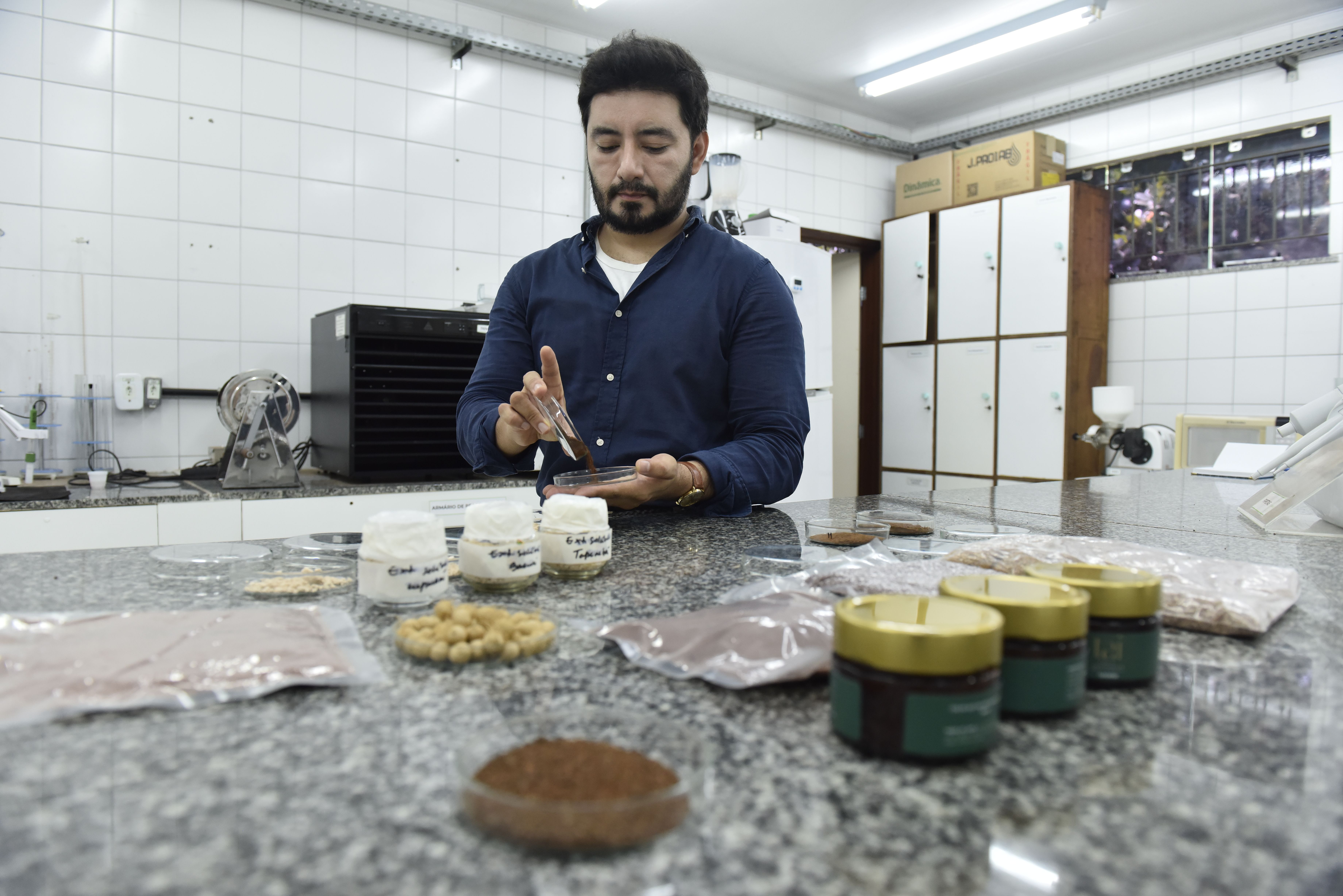
The document was developed by the Agency along with beverage producers, universities, agricultural sector associations, and the Ministério da Agricultura e Pecuária (Mapa) [Ministry of Agriculture and Livestock]. Despite the already existing state regulations, the product has not yet been formally registered at the national level by the Ministry.
PROGRESS
Orlando Nascimento, president of Abica, believes that Adepará's proposal to regulate the beverage was a step forward, but believes that the name change to "açaí coffee" and the registration requirements have created certain difficulties. "The name change has generated confusion and dissatisfaction, in addition to making it difficult to identify the product in the market. Meanwhile, other states continue to produce and sell without so many restrictions, even abroad. Today, only three factories are regulated in Pará: my own, in Pacajá; one in Castanhal; and another in Itupiranga," he explains.
"We would like more government support to boost the growth of the beverage market, which comes from one of Brazil's most incredible and nutritious fruits, strengthening the local economy and fostering our national pride. Açaí is a symbol of resilience, health, and flavor, and it conquers palates globally. We need to value this Brazilian treasure that enchants the world," claims Nascimento.
INSTITUTIONAL PARTNERSHIP
The production of Liberal Amazon is one of the initiatives of the Technical Cooperation Agreement between the Liberal Group and the Federal University of Pará. The articles involving research from UFPA are revised by professionals from the academy. The translation of the content is also provided by the agreement, through the research project ET-Multi: Translation Studies: multifaces and multisemiotics.